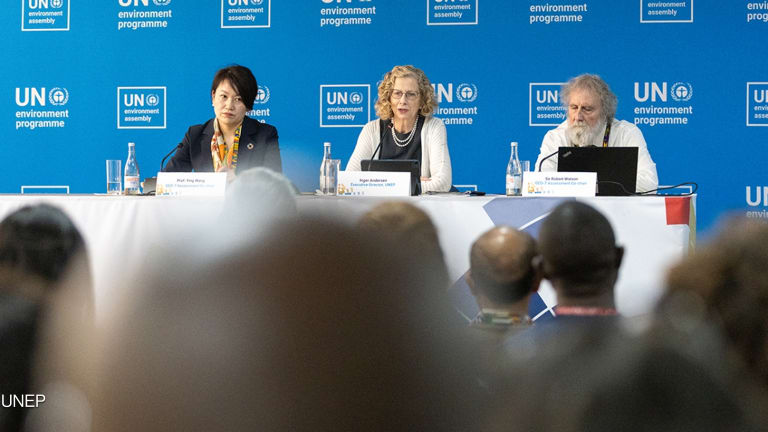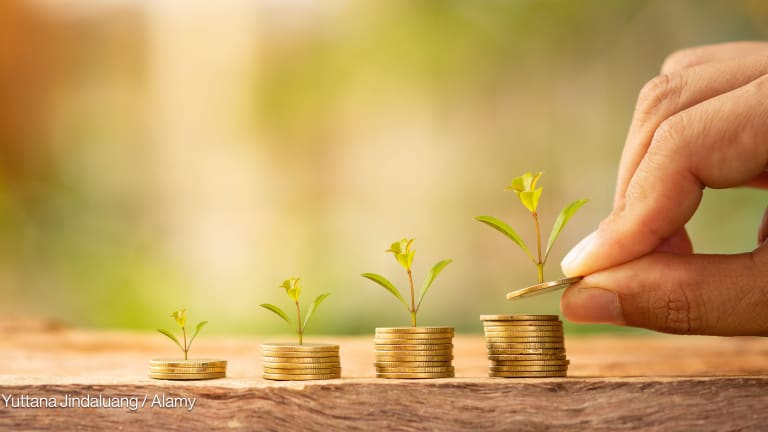The IUCN World Conservation Congress, held Oct. 5-14 in Barcelona, Spain, aims to incorporate the rise in population and energy demand and its impact on biodiversity and humans into a debate on how to combat climate change. Tackling climate change challenges inevitably raises issues of political commitment, social justice and equity.
"There is no more time to waste, we must act upon climate change challenges now," noted IUCN Director General Julia Marton-Lefèvre at the first of several forums addressing climate change.
"A holistic coalition on behalf of the government at national and international level, civil society, private sector must be in place," said Poul Engberg-Pedersen, director general of the Norwegian Agency for Development Cooperation.
A global coalition, however, is a challenging undertaking as climate change generates a situation of global injustice where those most "involved in emitting greenhouse gas emissions are those least likely to suffer," said Ninni Ikkala, of IUCN's Climate Change Initiative at a conference workshop.
Delegates from more than 150 countries stressed that the loss of biodiversity caused by global warming coupled with overconsumption especially in industrialized countries have the most severe impact on the world's poorest communities. The number of environmental refugees - 24 million - is set to triple within the next 60 years, according to Walter Fust, director of the Global Humanitarian Forum, Switzerland.
"We know who will die first, because they already have," said Christine Milne, IUCN councilor from Australia, referring to vulnerable communities from developing countries.
The world's population is increasing and will soar to an estimated 9 billion within the next 50 years. In the meantime, climate change is "picking up pace" and we are now facing a twofold challenge - adapting to the already present impact while urgently decreasing emissions, noted Kathy Sierra, vice president of sustainable development at the World Bank, at a session on biodiversity.
"Differentiated but shared responsibility" between industrialized and developing countries should pave the way for fruitful negotiations, Créach said. It is important to acknowledge the difference in impacts caused by each respective country and address them with equity, he indicated - otherwise, it would be irrational to expect global drastic action.
So, who will take the first step, and who will foot the bill?
Libasse Ba, from the Environmental Development Action, noted: "Depending on where you are the in world the vision of climate change challenges are different and in turn political commitment varies."
Instead of speaking of North and South, developed and developing we should refer to "rich and poor and foot the bill accordingly," Créach noted. Equity in climate change challenges refers to "An equitable burden sharing paradigm that ensures equal sustainable development potential for all citizens of the world," he added.
Calls for equity in sharing both the consequences and the costs illustrate the need for stakeholders to work together with countries that lack the capacities of participating effectively in international climate change negotiations.
"National action plans alone or uncoordinated action by each country is inadequate," said Gabriel Tchatat, an official with the Ministry of the Environment in Cameroon. "There is an impending need for climate change to be mainstreamed into country's sectoral development projects."
"If firm political commitment is absent, conference after conference will be held without any impact," noted Milne.
These challenges may sound overwhelming when translated into action, but, as Milne said, we either "win or we loose."







